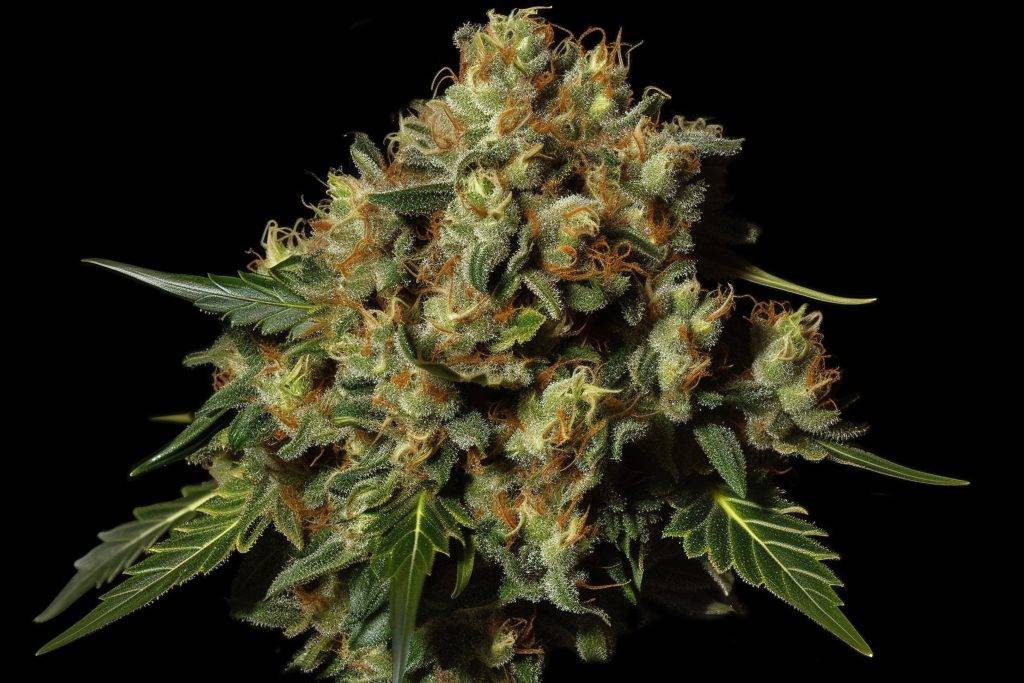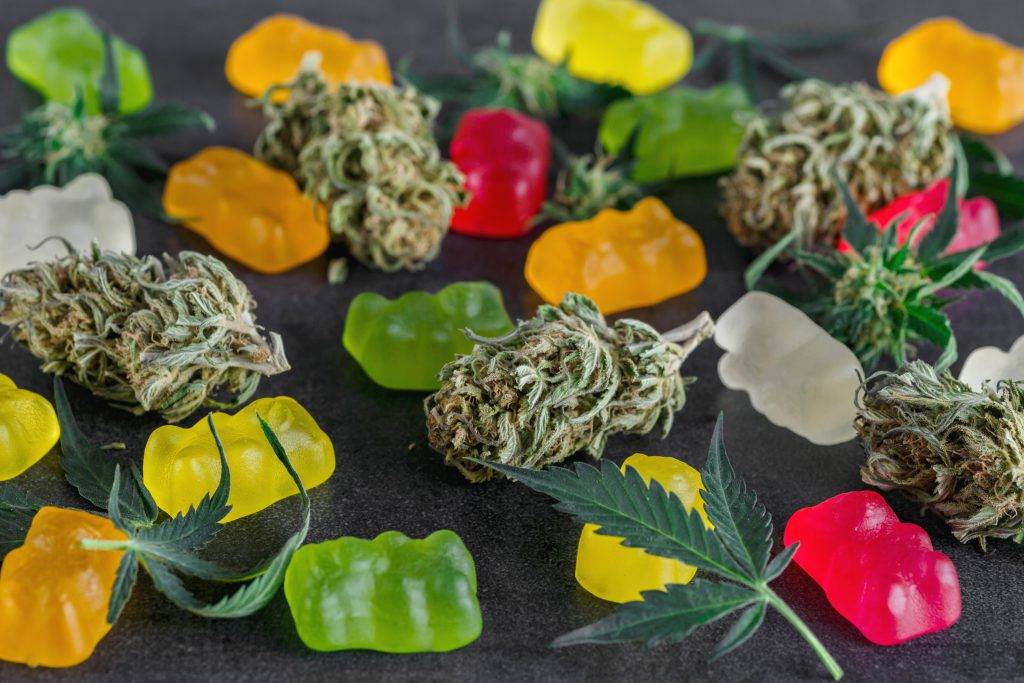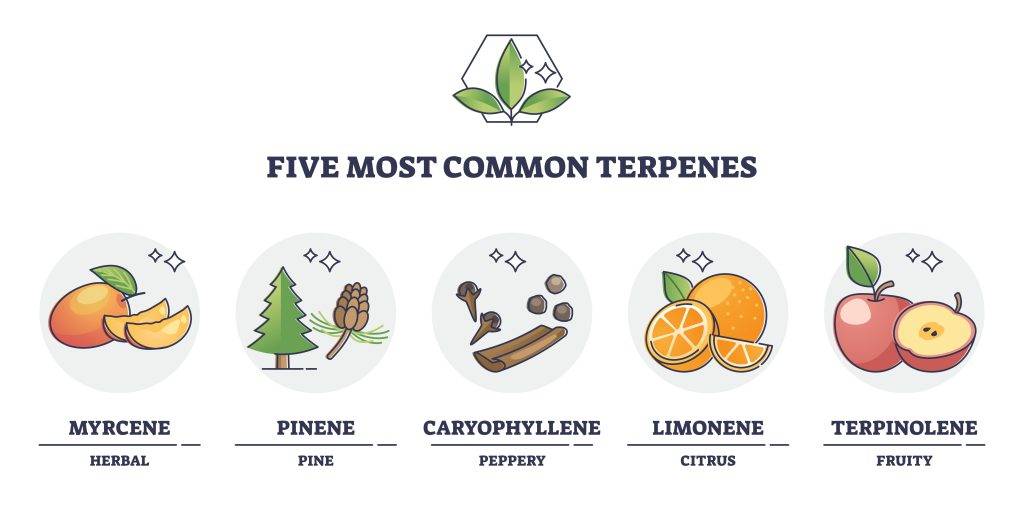
HHC-P: All About This New Cannabinoid
What is HHC-P? Cannabis products are gaining popularity every day. To satisfy consumers and offer them ever-changing experiences, chemists showcase their ingenuity! HHC-P, a novel
The world of cannabinoids is constantly evolving, and new variations are emerging to offer unique experiences and benefits. One such cannabinoid that has been gaining attention is H4CBD. As the popularity of CBD continues to soar, many are wondering if H4CBD has the potential to surpass CBD and become the new frontrunner in the industry. In this blog, we will delve into the characteristics, effects, and potential of H4CBD, addressing key questions along the way.
H4CBD is a hydrogenated form of CBD, created by adding hydrogen atoms to the CBD molecule. This alteration changes its chemical structure, resulting in a distinct compound. While CBD is a naturally occurring cannabinoid found in the cannabis plant, H4CBD is a synthetic cannabinoid derived from CBD.
H4CBD, being a hydrogenated form of CBD, has the potential to offer enhanced benefits compared to CBD. While scientific research on H4CBD is limited, preliminary studies suggest that its altered chemical structure and increased affinity for CB1 receptors may lead to different pharmacological effects. These effects could potentially result in enhanced therapeutic benefits in certain individuals.
H4CBD is reported to have a higher level of psychoactivity compared to CBD. While CBD is generally considered non-intoxicating and does not directly interact with CB1 receptors in the brain, H4CBD has a higher affinity for CB1 receptors, potentially leading to psychoactive effects. However, it’s important to note that the degree of psychoactivity may vary among individuals, and more research is needed to fully understand the psychoactive properties of H4CBD.
The legal status of H4CBD can vary depending on the jurisdiction. However, in the Netherlands, Belgium, and Luxembourg (BeNeLux), H4CBD is considered legal. It is important to note that the information provided here specifically applies to these countries. If you reside in a different jurisdiction, it is crucial to research and understand the legal framework surrounding H4CBD in your specific location.
In the Netherlands, Belgium, and Luxembourg (BeNeLux), legally sourced H4CBD products are available from licensed dispensaries, reputable manufacturers, or authorized retailers. These products should adhere to applicable regulations, quality standards, and safety protocols.
As H4CBD is a relatively new cannabinoid, there is limited research specifically focused on its side effects. However, based on the general understanding of CBD and other cannabinoids, potential side effects of H4CBD may be similar. Some commonly reported side effects of CBD include dry mouth, drowsiness, changes in appetite, and diarrhea. It is important to start with a low dosage of H4CBD and monitor your body’s response. If you experience any adverse effects, it is advisable to discontinue use and consult with a healthcare professional.
Due to the limited availability of research specifically on H4CBD, the safety profile of this cannabinoid is not well-established. However, research on CBD suggests that it has a good safety profile when used in appropriate dosages. It is important to source H4CBD from reputable sources to ensure quality and purity. Additionally, seeking user reports and experiences can provide insights into the safety of H4CBD. It is recommended to consult with a healthcare professional before using H4CBD, especially if you have any underlying medical conditions or are taking medications.
Like other cannabinoids, H4CBD may interact with certain medications. It is crucial to consult with a healthcare professional before using H4CBD, particularly if you are taking any prescription medications. H4CBD may influence the metabolism of certain medications by affecting liver enzymes. Additionally, individuals with specific health conditions, such as liver disease or low blood pressure, should exercise caution and seek medical advice before using H4CBD to ensure it is safe for their situation.
The future of H4CBD is expected to be safe and promising. While specific research on H4CBD is currently limited, there has been extensive research conducted on CBD, which serves as a foundation for assessing the safety of cannabinoids in general. CBD has been well-studied and is considered safe for most individuals when used appropriately.
Given the similarities between CBD and H4CBD, it is reasonable to expect that H4CBD will exhibit a comparable safety profile. Additionally, since CBD is legal in many countries, including the Netherlands, Belgium, and Luxembourg (BeNeLux), it provides a positive indication for the legal status of H4CBD in these regions.
As the cannabis industry continues to evolve, regulations and research surrounding cannabinoids like H4CBD are expected to develop further. It is crucial to stay updated on the latest scientific findings and adhere to local laws and regulations regarding H4CBD.
Overall, based on the existing research on CBD, the legal status of cannabinoids, and the expected advancements in the field, the future of H4CBD appears to be safe and promising.
H4CBD has gained attention as a unique cannabinoid with potentially enhanced effects compared to CBD. This growing interest suggests that consumers are seeking alternative options that provide stronger therapeutic benefits or a different experience than traditional CBD. As more people become aware of H4CBD and its unique properties, its demand in the market is expected to rise, indicating its potential longevity.
Ongoing research on H4CBD is crucial for its future prospects. Scientific investigations into its therapeutic potential, safety profile, and mechanisms of action can provide valuable insights into its efficacy and applications. Positive findings from scientific studies can provide evidence to support the use of H4CBD in various contexts, further solidifying its position in the cannabinoid market.
The response of the cannabinoid market to H4CBD will significantly influence its staying power. If H4CBD gains positive traction among consumers, manufacturers and retailers are likely to offer a wider range of H4CBD products to meet the demand. Additionally, positive reviews, testimonials, and word-of-mouth recommendations from users can contribute to its market acceptance and longevity.
H4CBD’s legal status is a critical factor in its future. Currently, H4CBD is legal in the Netherlands, Belgium, and Luxembourg (BeNeLux). This legal acceptance allows for the production, sale, and consumption of H4CBD products in these regions. As long as the legal framework remains supportive, it provides a favorable environment for H4CBD to thrive and establish a foothold in the market.
Ultimately, consumer preferences will determine the success and longevity of H4CBD. If consumers find H4CBD to be safe, effective, and suitable for their needs, it is more likely to gain popularity and become a staple in the cannabinoid market. Consumer feedback, experiences, and satisfaction will drive demand for H4CBD products, influencing its future adoption and market presence.
Overall, the positive response from consumers, driven by favourable experiences, tailored therapeutic benefits, novelty, and increased awareness, contributes to the potential success and long-term viability of H4CBD in the cannabinoid market.
Powered by HeldCBD

What is HHC-P? Cannabis products are gaining popularity every day. To satisfy consumers and offer them ever-changing experiences, chemists showcase their ingenuity! HHC-P, a novel

Exploring the World of Hexahydrocannabinol (HHC) Before diving into the diverse ways how to consume HHC, let’s delve into what makes this cannabinoid unique. Hexahydrocannabinol,

Cannabis Terpenes Exploration Guide In the intricate world of cannabis, the aromatic compounds known as terpenes are the unsung heroes, contributing not only to
| Cookie | Duration | Description |
|---|---|---|
| cookielawinfo-checkbox-analytics | 11 months | This cookie is set by GDPR Cookie Consent plugin. The cookie is used to store the user consent for the cookies in the category "Analytics". |
| cookielawinfo-checkbox-functional | 11 months | The cookie is set by GDPR cookie consent to record the user consent for the cookies in the category "Functional". |
| cookielawinfo-checkbox-necessary | 11 months | This cookie is set by GDPR Cookie Consent plugin. The cookies is used to store the user consent for the cookies in the category "Necessary". |
| cookielawinfo-checkbox-others | 11 months | This cookie is set by GDPR Cookie Consent plugin. The cookie is used to store the user consent for the cookies in the category "Other. |
| cookielawinfo-checkbox-performance | 11 months | This cookie is set by GDPR Cookie Consent plugin. The cookie is used to store the user consent for the cookies in the category "Performance". |
| viewed_cookie_policy | 11 months | The cookie is set by the GDPR Cookie Consent plugin and is used to store whether or not user has consented to the use of cookies. It does not store any personal data. |